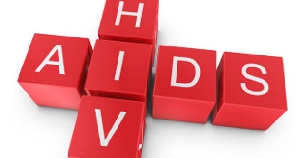On December 1, Ghana observed World AIDS Day with the rest of the world. December 1 is a day set aside by the United Nations when all citizens of the world demonstrate support for persons living with HIV and remember those who have died from AIDS-related illnesses.
Like the rest of Sub-Saharan Africa where nearly 61% of new infections are concentrated, HIV prevalence is high in Ghana. According to the Ghana Aids Commission, a total of 346,120 persons (34% males, 66% females) are said to have the virus.
The global community promotes primary prevention and other multisectoral interventions as key response mechanisms for containing the spread of HIV. Therefore, as we solidarize with persons living with HIV, there is a need for concerted actions aimed at increasing awareness of the disease, particularly, among young persons.
Increased awareness is crucial because only 1 in 4 young persons have accurate information about HIV transmission and prevention strategies globally. In Sub-Saharan Africa, as many as 7 in 10 young women do not have comprehensive knowledge about HIV.
Many adolescent boys and girls are, therefore, vulnerable to HIV in Ghana. Findings made by the African Women Lawyers Association in 2021, as part of sexual and gender-based violence (SGBV) sensitization programs in schools and communities in Techiman South and Kintampo North, as part of EU and Oxfam Ghana’s Enough project on SGBV, most adolescent boys and girls lacked adequate understanding about HIV and how SGBV could contribute to HIV infections.
This, perhaps, is partly due to low HIV media campaigns which became worst during the COVID-19 pandemic, as a result of disruptions to economies.
As most NGOs and other community stakeholders focus on promoting actions against SGBV and unprecedented teenage pregnancy cases amongst adolescent girls in many communities across Ghana, there is a need to step up sensitization on HIV as these adolescent girls are at risk of contracting the virus because of the same reasons that account for the high teenage pregnancies, including transactional sex as a result of poverty, sexual violence, and ignorance, among others.
Health News of Monday, 5 December 2022
Source: Cosmos Kwame Akorli, Contributor













